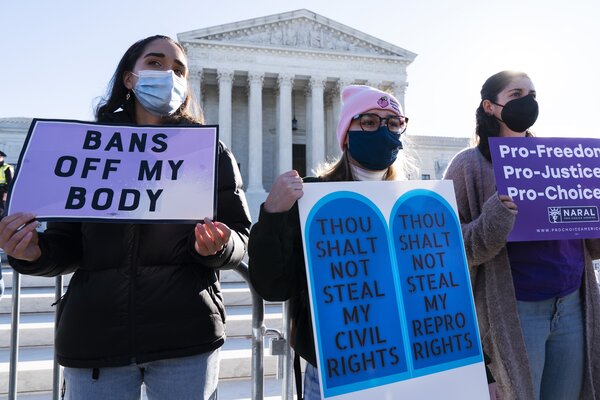April 22, 2014
Awais Sajjad, a lawful permanent U.S. resident living in the New York area, learned he was on the no-fly list in September 2012 after he tried to board a flight to Pakistan at John F. Kennedy International Airport and was turned back.
At the airport, FBI agents questioned Sajjad, a Muslim, before releasing him. But they later returned with an offer. In exchange for working for them, the FBI could provide him with U.S. citizenship and compensation. The FBI, the agents reminded Sajjad, also had the power to decide who was on the no-fly list.
When he refused, the FBI agents “kept him on the list in order to pressure and coerce Mr. Sajjad to sacrifice his constitutionally-protected rights,” according to an amended lawsuit filed Tuesday in federal court in New York.
The lawsuit, filed on behalf of Sajjad and three other men, accuses the United States of violating their rights by placing or keeping them on the no-fly list after they declined to spy on local Muslim communities in New York, New Jersey and Nebraska.
“The no-fly list is supposed to be about ensuring aviation safety, but the FBI is using it to force innocent people to become informants,” said Ramzi Kassem, associate professor of law at the City University of New York. “The practice borders on extortion.”
The Creating Law Enforcement Accountability & Responsibility project, which Kassem supervises, and the Center for Constitutional Rights filed suit on behalf of the men.
In the case of; Dr Rahinah Ibrahim, who is not a national security threat.
It took a lawsuit that has stretched for eight years for the feds to yield that admission. It is one answer in a case that opened up many more questions: How did an innocent Malaysian architectural scholar remain on a terrorism no fly-list—effectively branded a terrorist—for years after a FBI paperwork screw up put her there? The answer to that question, to paraphrase a particularly hawkish former Secretary of Defense, may be unknowable.
Last week, there was a depressing development in the case. A judge’s decision was made public and it revealed that the White House has created at least one “secret exception” to the legal standard that federal authorities use to place people on such lists. This should trouble anyone who cares about niggling things like legal due process or the US Constitution. No one is clear what the exception is, because it’s secret—duh—meaning government is basically placing people on terror watchlists that can ruin their lives without explaining why or how they landed on those lists in the first place.
Ibrahim’s attorney, Elizabeth Pipkin, said she can’t say for sure how the authorities first became interested in her client. “That was speculation on our part,” she said. “The sad thing is, even after eight years of litigation, we weren’t able to get to the bottom of what was the underlying information that lead an FBI agent to her door and brought this whole thing about.”
But as great as a “Feds Suck at Googling” headline would be, it could be even more simple and ridiculous. According to one judge, an FBI agent made a basic paperwork error by filling out the form the opposite way from the instructions: ticking the lists she thought Ibrahim should not be on rather than the ones that she should. That screw up might be to blame for turning eight years of her life into a hellish pit of litigation.
In 2007, a Justice Department audit found that the “management of the watchlist continues to have weaknesses” and that the department needed “to further improve its efforts for ensuring the accuracy of the watchlist records.”
U.S. citizens have also been stranded abroad and never told why they couldn’t fly home. Yahye Wehelie, who was raised in Fairfax County, couldn’t leave Egypt for weeks in 2010; he was stopped in Cairo on his way to Yemen to find a wife.
In a previous interview with The Washington Post, Wehelie said FBI agents asked him if he was willing to inform on the Muslim community in his area when he got home.
Vice.com: http://www.vice.com/read/no-fly-list-rahinah-ibrahim-danny-mcdonald?utm_source=vicefbus






